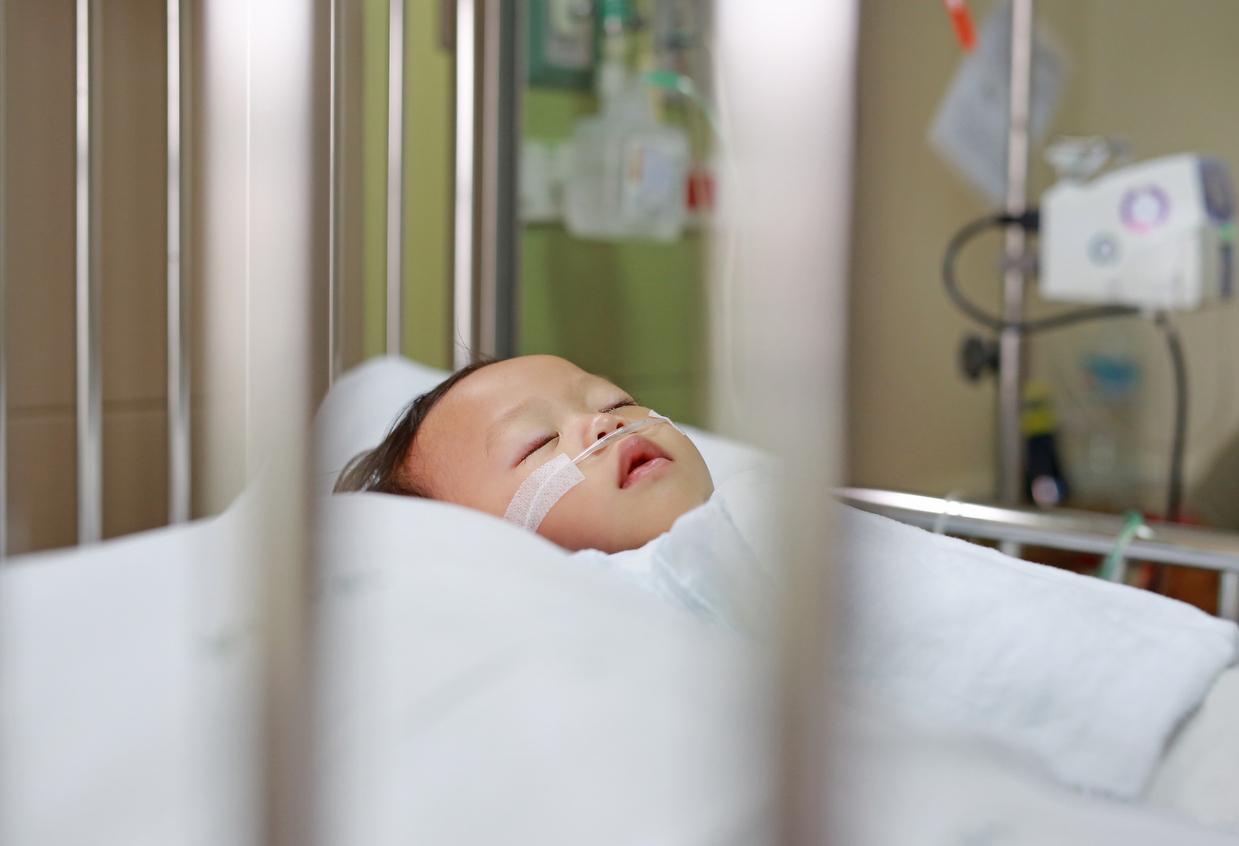A study yesterday in JAMA Network Open shows a 70% increase in the number of children requiring advanced respiratory support when hospitalized with respiratory syncytial virus (RSV) during the 2022-23 season. Advanced respiratory support includes high-flow nasal cannula (HFNC), noninvasive ventilation (NIV), or invasive mechanical ventilation (IMV).
The study follows one published earlier this week describing the severity of that 2022-23 RSV season and coincides with a meta-analysis showing good protection of RSV vaccines for both babies and older people.
During the first two pandemic winters, mitigation strategies meant to fight COVID-19 significantly limited and altered the spread of RSV, which typically follows a seasonal peak of activity. Once those measures, including school closures and mask-wearing, were lifted, RSV peaked early and caused more hospitalizations for kids.
"Emerging data suggest that altered virus seasonality and absent early-life virus exposure during the pandemic have shifted the pediatric RSV and bronchiolitis demographic, with older children requiring hospitalization compared with prepandemic seasons," the study authors wrote.
Pediatric patients older, fewer co-morbidities
The JAMA study is based on outcomes seen in 288,816 children 5 years or younger treated at 48 pediatric hospitals in the United States from July 1, 2017, through June 30, 2023. Outcomes in 2022-23 were compared to 2017-18, 2018-19, and 2019-20, the prepandemic era.
Pediatric RSV infections decreased markedly early in the COVID-19 pandemic, the authors said, with 82.0% less hospitalizations in 2020-21 than the 2017-20 prepandemic annual mean.
In 2022-23, hospitalizations almost doubled, to 50,619, compared with 27,114 annually in the prepandemic seasons. There was also a 43.5% increase in intensive care unit admissions that season.
Notably, in the 2022-23 season, children requiring more breathing support, were older (median 11.3 compared to 6.8 months), and had fewer co-morbidities.
Across all seasons, 21.6% of hospitalized patients required advanced respiratory support. But the total number of hospitalized patients requiring advanced respiratory support was 70% higher in 2022-23.
The largest respiratory support increase was in HFNC use, which almost doubled in 2022 and 2023 compared with prepandemic seasons (5,752 vs 2,945 children). NIV support increased 47.1%, and IMV use increased 28.6%.
"The increased rate of respiratory support needs in older, previously healthy children during the 2022 to 2023 postpandemic season aligns with the hypothesis that an 'immunity debt' in children who evaded RSV infection in their first years of life during the early COVID-19 pandemic has shifted the demographics of pediatric RSV infection in the postpandemic era," the authors concluded.
The increased rate of respiratory support needs in older, previously healthy children during the 2022 to 2023 postpandemic season aligns with the hypothesis that an 'immunity debt' in children who evaded RSV infection in their first years of life .
Meta-analysis estimates VE for RSV vaccine
In other RSV news, a meta-analysis of 10 trials of RSV vaccine efficacy (VE) finds that, for maternal vaccination, VE was 57.3% against RSV-related lower respiratory tract disease (LRTD) and 81.9% against severe LRTD in infants within 90 days after birth. For older adults VE was 78.3% against RSV-related LRTD and 86.5% against RSV-related severe LRTD.
The study was published yesterday in the International Journal of Infectious Diseases. Overall, 12,400 pregnant women, 12,102 infants, and 115,653 older adults were included in the analysis.
Though the results show promising VE, the vaccines have been used by the pubic during just one RSV season, the authors say.
"Further evidence from real-world settings is necessary to strengthen these findings and evaluate the vaccine effectiveness in broader populations," the authors concluded. "Additionally, assessing the cost-effectiveness of RSV vaccines compared to monoclonal antibodies is crucial, considering factors such as efficacy, safety, duration of protection, and overall economic impact."



















